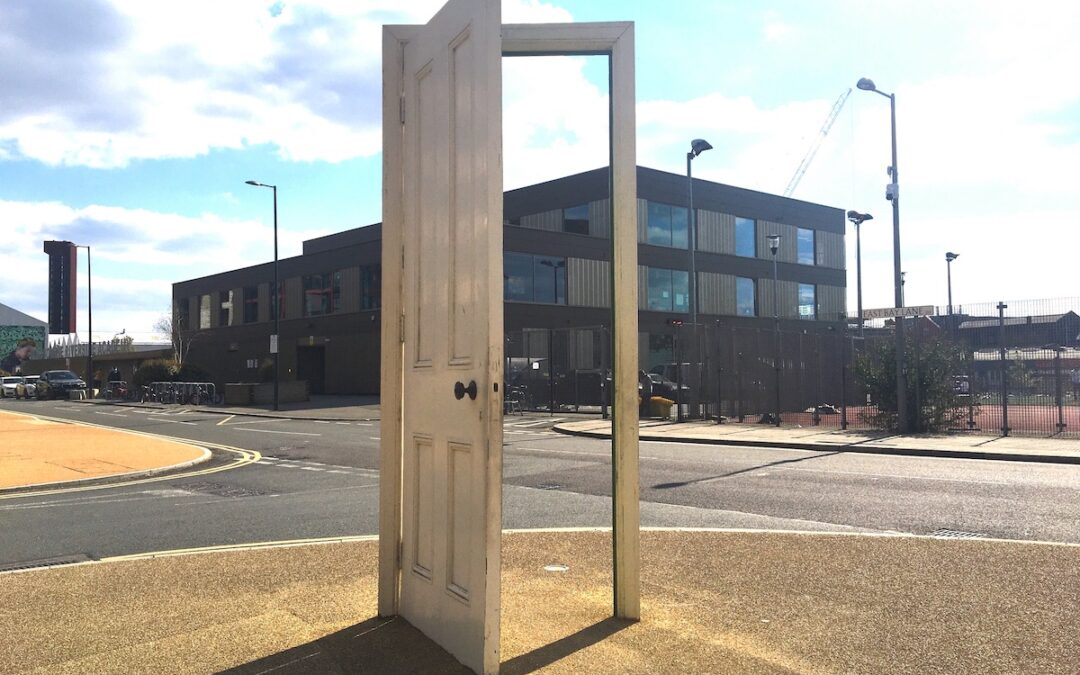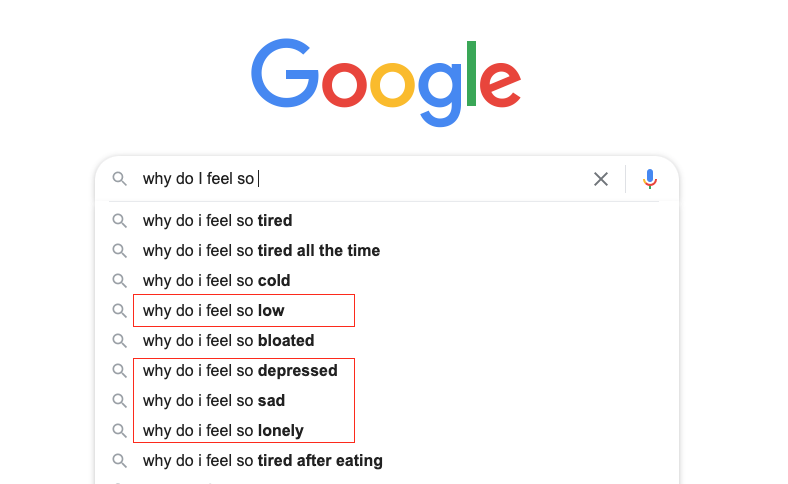I was having a coffee locally next to an outdoor artwork of a free-standing door. A door, which if it was closed, might make you believe that your path was blocked. It made me think of how so often, we stand in our own way — how we create a gateless gate.
Wumen Huikai
The Gateless Gate (Wumen Huikai, Chinese) is in fact the name given to a collection of 48 Zen Koans compiled in the 13th century. The golden thread that runs through the Wumen Huikai, is how we often create barriers for ourselves when none exist — hence, the gateless gate.
At root, this arises because we confuse arbitrary and symbolic descriptions of the world for reality itself. Because we confuse the map for the territory, the finger for the moon. And, that includes how we relate to ourselves at a very fundamental level. Caught-up in the complex narratives our minds produce, we live in constant anxiety about the past and future.
Standing in your own way
We may describe the human condition as one of self-contradiction. Where we put ourselves in internal conflict with ourselves. We are not like dolphins and deer that live and die without the many psychological knots that humans experience. And, it seems that the seed of self-created suffering was baked-in from the beginning. It is our ‘original sin’, if you like. And, our loss of innocence was only inevitable, for it was our fate (destiny?) to eat from the tree of knowledge. That is just our nature.
We, humans, have complex minds capable of reflective thought. We can project forwards and backwards through time using memory and imagination. And, we often use it to good effect — just look at our immense technological feats. The only problem is that all this can so easily get out of hand and bring inner conflict. So, our complex minds produce it all — the good, the bad and the ugly.
But, what use is the good if we only tie ourselves up in knots with our minds? Because we create contradictions within ourselves in how we relate to the world.
Who you “ought” to be
The biggest contradiction here is between who you are and who you believe you ought to be. And, once this niggling doubt appears, it can lead to a war within. One that results in the kind of anxiety-ridden, existential doubt we see in so much of modernity.
If there is a defining psychological theme of our time, it is probably captured by popular internet search terms such as:
“Why do I feel so sad/depressed/lonely, why do I feel I’m worthless, why do I feel I am not good enough?”
For all our material progress then, it is not self-evident that we are any happier. And, if the evidence of contemporary hunter-gatherers is to go by, we moderns may even have regressed on this front. It is as if increasing the ‘good’ (technology, wealth, medicine etc.) has only increased the bad and the ugly. The story of humanity is so often one of means taking over ends, tools taking over their users. Whatever material progress we have created, we have also enslaved ourselves in the process.
We strive harder and harder for an uncertain future, believing that “more and better” will make us happier. But, “more and better” is just an arbitrary narrative we have come to worship. It is modernity’s God, but it is not going to bring us salvation.
Noticing self-talk
If a war is being waged within, language-based thought is the weapon in use. For, thought is our ever-present companion, chattering away as it tries to make sense of the world with its arbitrary and symbolic descriptions of reality. Descriptions, while useful, are also dangerous. Why? Because they are mere approximations, which can never replace reality itself. For, reality is an experience — an indefinable experience that is constantly unfolding and in a sense infinite. Our symbolic thought descriptions of reality can never capture this fullness. Yet, we forget the simple truth that the finger is not the moon.
That is why noticing your self-talk and inner monologue is essential to waking-up to yourself and to all existence. To challenging the arbitrary narratives that keep us from entering the gateless gate. For, it goes to the very core of your relationship to yourself. We all have a narrator inside us, a little voice that is constantly judging, evaluating and apparently making decisions. I say ‘apparently’ because it is not self-evident to what extent it is actually making decisions or simply rationalising them after the fact. This is a matter for personal investigation.
You are not your ego
What also starts to become clearer during such investigation is that you are NOT your inner monologue. Though, this is what your ego mind would like to believe, because it loves the certainty of a clear narrative. It loves to cling to mere descriptions used for the sake of convenience: “I am so-and-so, born in [ ], with professional experience…blah blah blah.” And, the ego craves the illusion of control that it attaches to this very partial story. A story that your ego believes is YOU and as such, defines your worth by.
Your self-talk takes-up a lot of your conscious attention, yet it is but a fraction of who you are. The difficulty is that our self-talk is so loud that we are fooled into thinking that it is all we are. That its pronouncements and conclusions about us and the world are ultimate truths, rather than the comings and goings of the mind. Thoughts are to the mind, as ripples are to water. Yet we can cling to our thoughts as if they are the only reality.
Hidden beliefs that create the gateless gate
Going further, the surface level narrative about who you are hides deeper beliefs that you hold about yourself and the world. Perhaps, beliefs about “success and achievement” that live outside conscious awareness, but that drive so much of what you do and how you see yourself.
So, to be lost in self-talk is to be lost in the surface of things. You must look deeper into yourself to uncover how you relate to life itself. Because there will be unexamined beliefs at play. Beliefs conditioned by experience from the day you were born. Beliefs that may keep you in a place of existential doubt, never feeling good-enough — beliefs that create the gateless gate.
Living for tomorrow
There is no reason that the natural state of man cannot be one of being at ease. Like a cat sitting in the sun or a monkey playing with a blade of grass. We may have complex minds, but we have the ability to choose how we live.
And, that choice begins with really noticing how things are for you at present. Noticing your self-talk and hidden beliefs. How you experience yourself and your interactions with others. How you might be chasing after this, that and the other, without even realising it? And for what? When will it all end? Have you even paused to really consider it?
Through the gateless gate
If you realise that there is no ultimate meaning in the achievement of anything, you automatically become free. Free to do whatever you find interesting, without the burden of needing to prove anything. Because you know that there is nothing special in achievement. Because you realise that special can be found at any moment, in ordinary experience that is in fact, quite extraordinary!
There is a reason the old masters compare such self-knowledge to passing through the gateless gate. Because it is both the easiest and most difficult thing in the world. That is perhaps why when Nansen was asked: “What is the Tao (the Way)”, he simply replied, “Your everyday mind is the Tao”.
_____________________________________________________________________________________________




Recent Comments